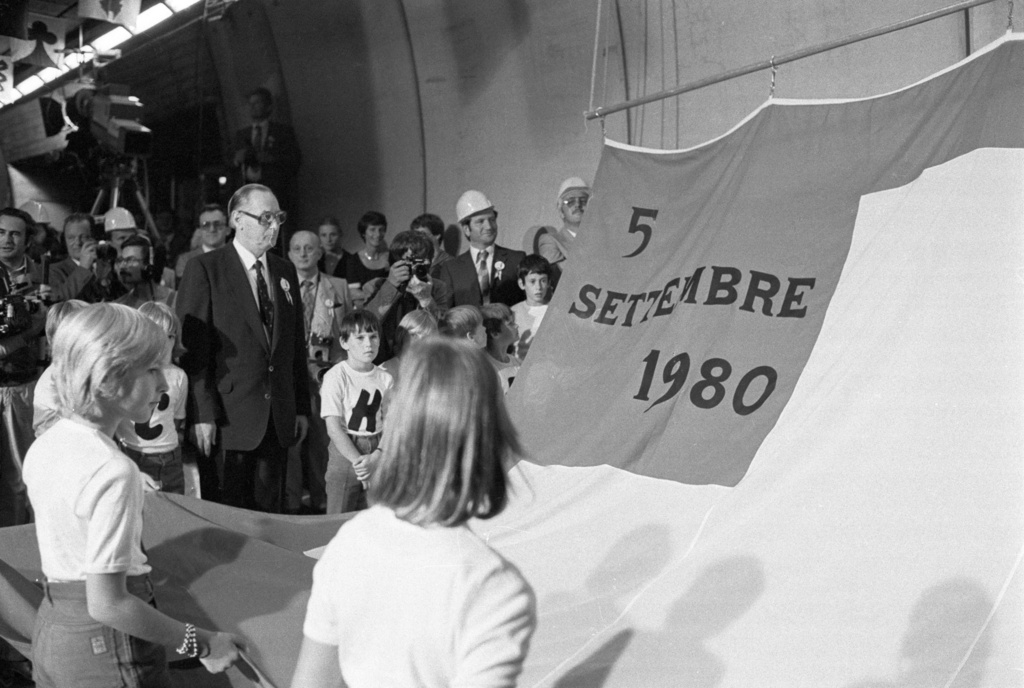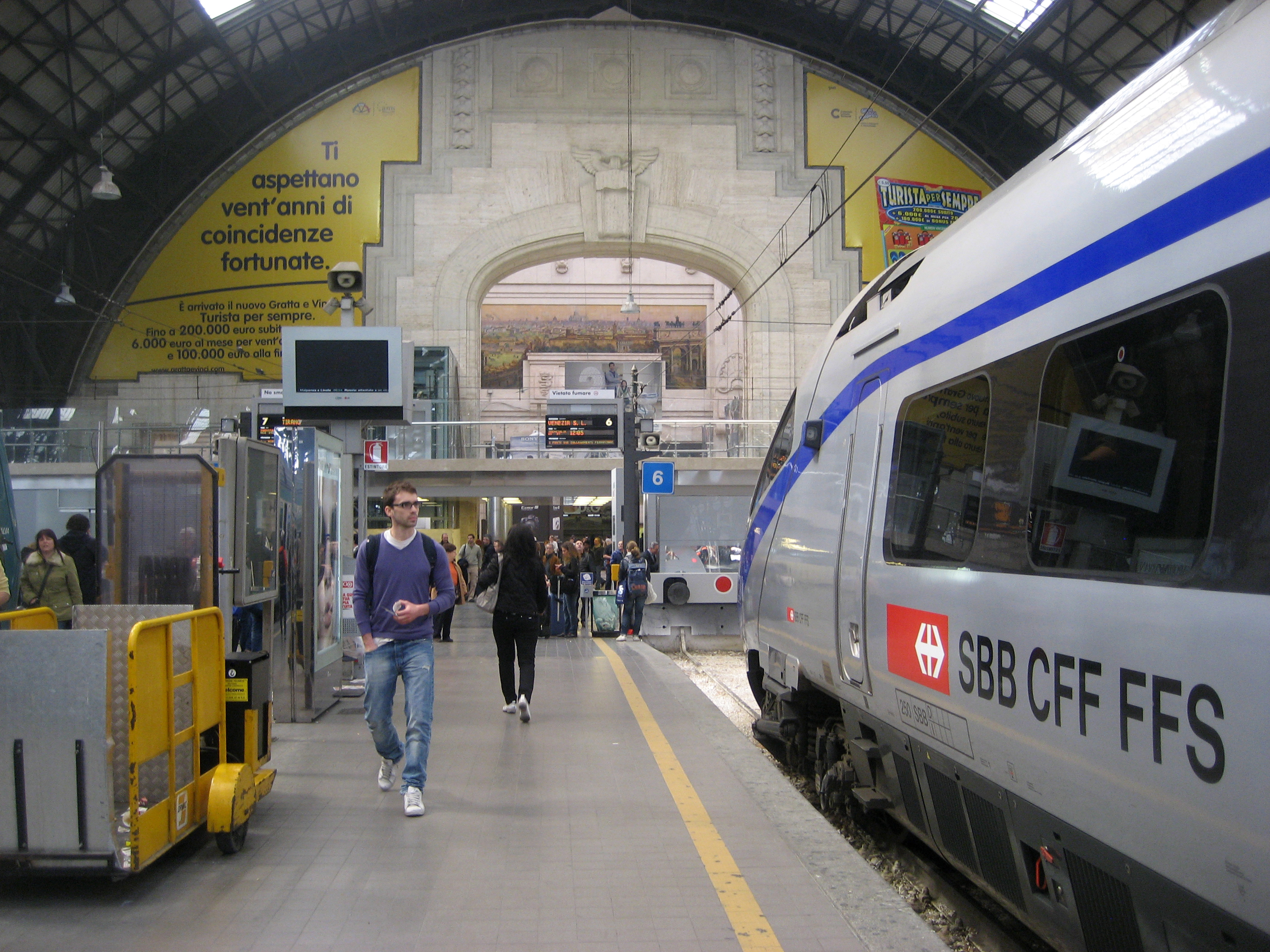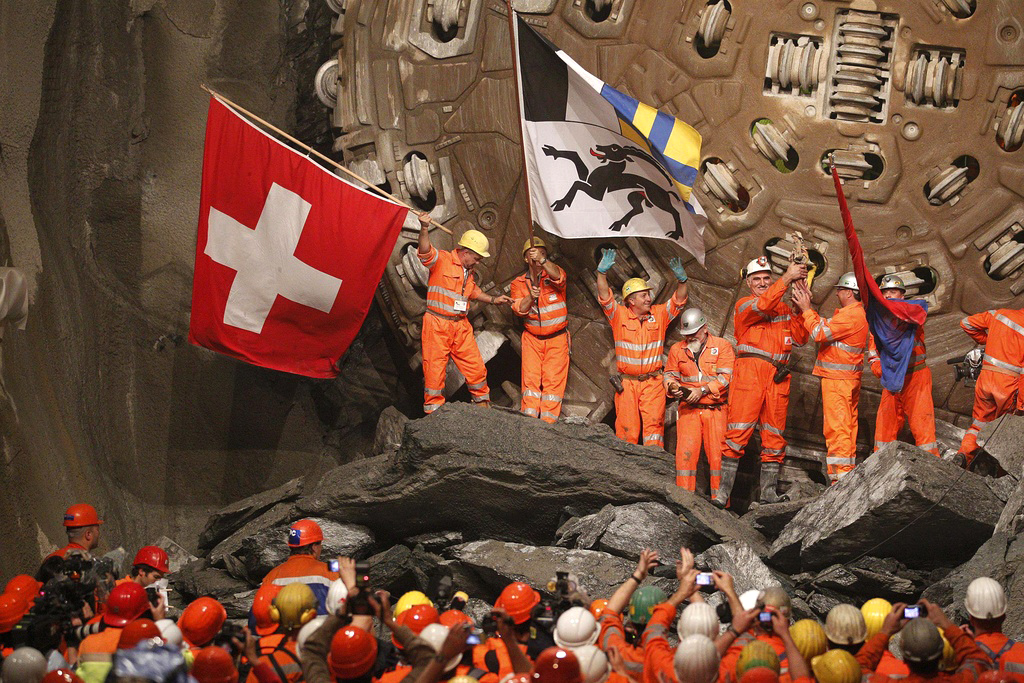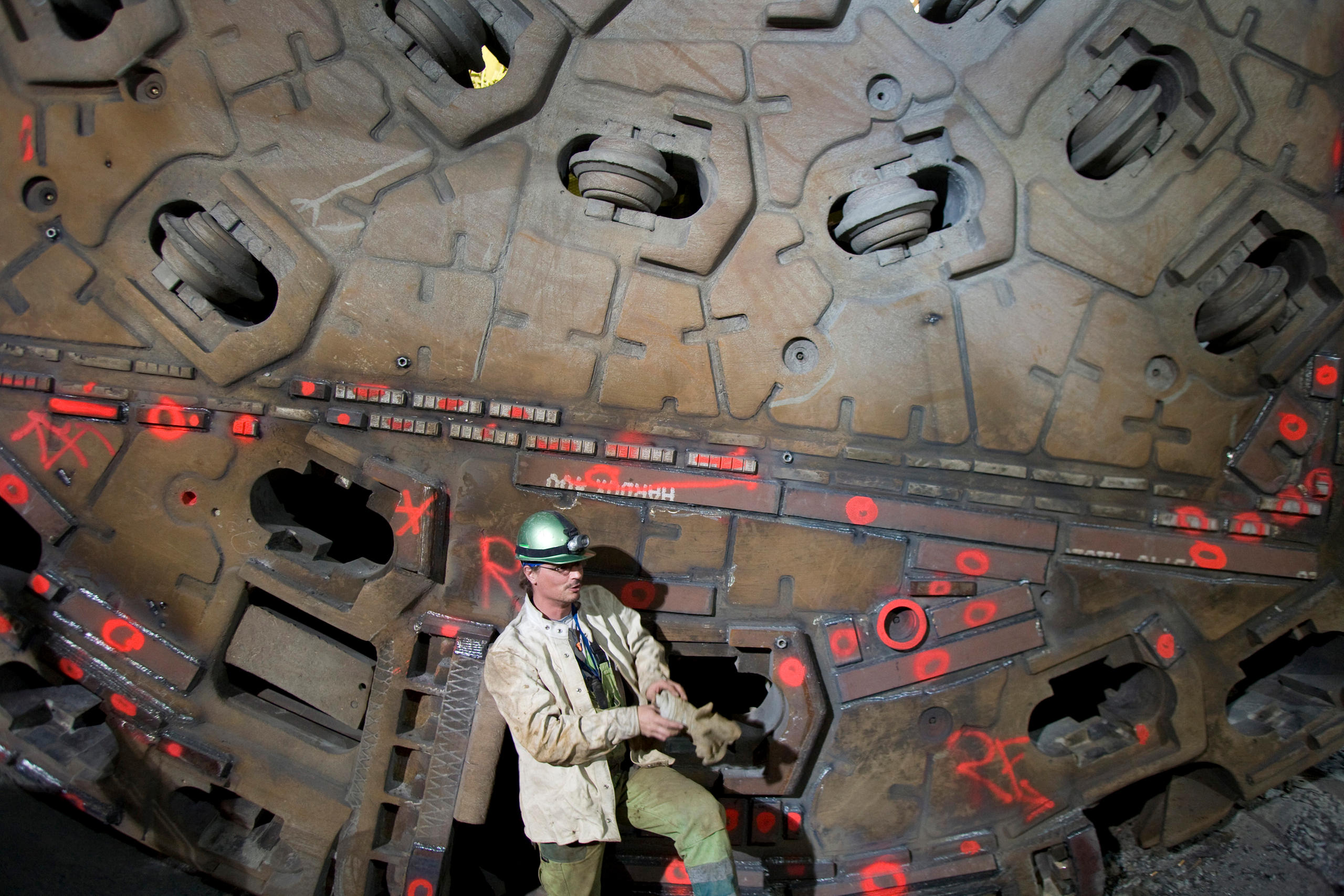Gotthard train line cut off for one month

The Gotthard railway line, the main north-south axis through the Swiss Alps, will be shut down for at least a month after a landslide damaged the track near Gurtnellen in canton Uri. Swiss Federal Railways said the site remains unsafe.
The company said on Wednesday the cliff face would probably have to be dynamited as more rocks threaten to come crashing down on the line and the valley below.
Federal Railways spokesman Reto Kormann added making the site secure and clearing the debris would take at least a month, meaning the closure of the line would last as long. Work will include repairing the electric line, the tracks as well as a retaining wall.
Up to 3,000 cubic metres of rock came tumbling down on Tuesday, injuring two workers and carrying away another who is still buried under the debris according to the authorities.
The men were securing the site of a smaller landslide that came down in March, closing the line for five days while other rocks were dynamited and the site cleaned up.
The recovery of the 29-year-old’s body has not been able to get underway due to the instability of the cliff above, where another 500 cubic metres of rock threaten to come down at any time. An unaccompanied sniffer dog was able to find the body’s location on Tuesday.
Disturbances
Rail traffic has been seriously disturbed by the shutdown. Around 4,000 passengers per day usually travel along the Gotthard line.
Travellers from northwestern Switzerland heading south to canton Ticino and Italy have been advised to take trains going through the Lötschberg and Simplon tunnels. Those leaving from Zurich can transfer to buses to get around the accident site, but can also expect to arrive at their destinations up to 90 minutes late.
The Federal Railways is also scrambling to find alternative solutions for up to 1,500 schoolchildren who had booked trips to Ticino for their end-of-year excursions this Friday, according to Kormann.
Cargo traffic is another problem. So far ten goods trains are blocked in Switzerland and another ten in Germany. “We are looking with France and Austria for alternative routes,” said Kormann.
Capacity through the Simplon tunnel in canton Valais is currently restricted because of construction work on the Swiss and Italian sides.
Not unusual
Rockfalls are not unusual in the area, regularly leading to closures of the railway line and the nearby roads. The worst recent accident happened when a bedroom-sized rock came down on the A2 motorway in May 2006, crushing a car heading south and killing its two occupants.
Geologists who had been watching the site said they were surprised by the latest landslide, as well as it size, direction and speed, especially as the cliff had been under constant surveillance.
“We had no way of predicting this latest landslide 30 to 50 metres away
from the previous one,” said Federal Railways Marc Hauser on Wednesday.
“There were no warning signs and no movement of the cliff face.”
Rockfalls should become less of a problem for the railways when the new 57-kilometre Gotthard base tunnel opens in 2016, replacing the current one finished in 1881 and bypassing the danger zone.
The Gotthard Base Tunnel (ready 2016) and Ceneri Base Tunnel (ready 2019) create an ultramodern flat rail link whose highest point is at 550 metres above sea level. This is much lower than the highest point of the existing route through the mountains at 1,150 metres.
The route through Switzerland becomes flatter and 40km shorter, so faster for passengers. Freight trains travelling on the flat route can be longer and pull up to twice today‘s weight – 4,000 tonnes instead of 2,000 tonnes. They will be up to twice as fast.
These two tunnels, plus the Lötschberg base tunnel (opened 2007), are the key elements of the NRLA (New Rail Link through the Alps).
The NRLA is one of the world’s largest construction projects and includes the extension of two North-South railway lines through Switzerland.

In compliance with the JTI standards
More: SWI swissinfo.ch certified by the Journalism Trust Initiative













You can find an overview of ongoing debates with our journalists here . Please join us!
If you want to start a conversation about a topic raised in this article or want to report factual errors, email us at english@swissinfo.ch.